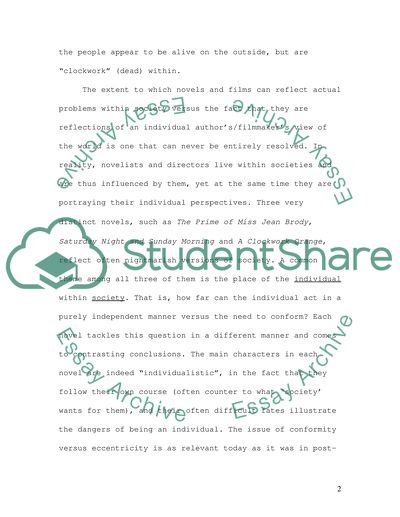Cite this document
(The Problems of Post-War British Society in A Clockwork Orange, The Movie Review, n.d.)
The Problems of Post-War British Society in A Clockwork Orange, The Movie Review. Retrieved from https://studentshare.org/history/1537498-post-ww2-fiction-and-film
The Problems of Post-War British Society in A Clockwork Orange, The Movie Review. Retrieved from https://studentshare.org/history/1537498-post-ww2-fiction-and-film
(The Problems of Post-War British Society in A Clockwork Orange, The Movie Review)
The Problems of Post-War British Society in A Clockwork Orange, The Movie Review. https://studentshare.org/history/1537498-post-ww2-fiction-and-film.
The Problems of Post-War British Society in A Clockwork Orange, The Movie Review. https://studentshare.org/history/1537498-post-ww2-fiction-and-film.
“The Problems of Post-War British Society in A Clockwork Orange, The Movie Review”, n.d. https://studentshare.org/history/1537498-post-ww2-fiction-and-film.


